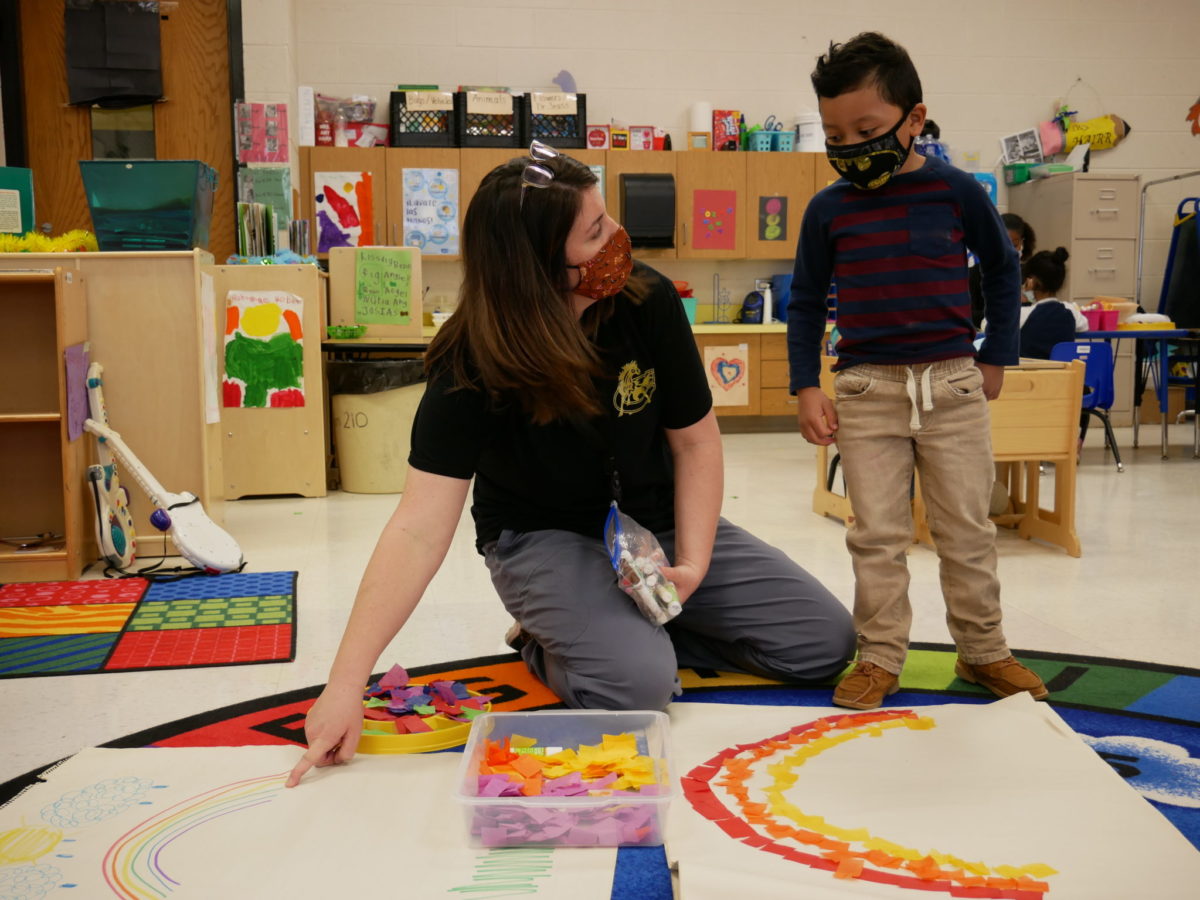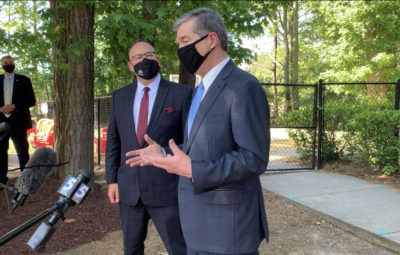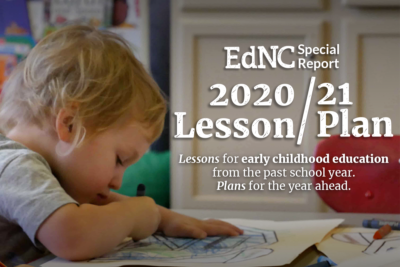
County commissioners in North Carolina could create “service districts” to fund early education programs under a bill the House passed this month.
House Bill 664, which has bipartisan sponsorship and now sits in the Senate rules committee, would add “early childhood education programs” to the list of purposes for which counties can levy property tax.
The change could enable a source of public funds for an early care and education system that largely relies on private rates. Those rates, though unaffordably high for many, do not cover the cost of quality early learning, including fair wages for the educators, said Rep. Ashton Clemmons, D-Guilford, one of the bill’s primary sponsors.
“We’re really in an unsustainable cycle of quality early child care costing more than families are able to provide,” Clemmons said. The bill’s other primary sponsors are Rep. Donny Lambeth, R-Forsyth; Rep. Ray Pickett, R-Ashe/Watauga; and Rep. Brandon Lofton, D-Mecklenburg.
![]() Sign up for Early Bird, our newsletter on all things early childhood.
Sign up for Early Bird, our newsletter on all things early childhood.
Across the state and country, policymakers are grappling with how to lower costs and increase access to early childhood education programs while maintaining quality, Clemmons said.
“How do we get out of that cycle that we’re in right now? I think this is a tool in the toolbox. I think we need many tools in the toolbox,” she said.
“This just gives the option for a county to decide that this is an investment that we want to make in our community.”
Service districts are defined areas within a town or county in which the local government can raise property taxes for a specific service that would benefit those within the district, from sewage collection and disposal to recreation.
A 35-year-old model in Florida
In Florida, counties are able to create service districts to fund services for children and families. A state law, passed in 1986, allows counties to establish Children’s Services Councils (CSCs), which are considered another type of local government, to oversee those funds.
In Palm Beach County, more than 70% of the council’s funds go to early childhood services, from universal screening and early intervention services to child care scholarships, said council CEO Lisa Williams-Taylor.
“Nobody else was really funding in that area,” Williams-Taylor said.
The council also funds community centers called bridges, children’s literacy programs, home visiting services, and supports for maternal health during and after pregnancy.
Within formal early learning environments, the council funds education-based wage supplements and professional development for early educators and child care scholarships — including for children in home visiting programs and for older siblings who need after-school or summer care.
Through the pandemic, Williams-Taylor said, the council has been able to support smaller nonprofits while similar organizations have shut their doors in other counties. She said she hopes to provide PPE and sanitation materials to child care providers soon.
“We’ve been focused on early childhood for, certainly, the 16 years I’ve been here,” she said. “It really was over time, a shift to say the earlier we start, the better off.”
Nine councils across Florida are members of a statewide association called Florida Children’s Council. Michele Watson, CEO of the council, said locally funded initiatives can be measured against desired outcomes. Successful strategies can then be scaled across the state.
“That’s where the association really comes in, is taking all this great innovation … to the state-level decision-makers and working with policymakers to pass those policies to better support all the state’s children,” Watson said.
Watson pointed to the state’s alignment of subsidy and pre-K requirements as a statewide early childhood policy success that resulted from local investments from children’s councils.
Perpetuating inequities
Watson said Florida faces similar early childhood financing challenges that will require state investments that create “a true system that can be supportive and self-sustaining.”
“Without being able to supplement the ability for parents to have access to high-quality child care, we as a community and as a state are always going to create these haves and have-nots.”
Michele Rivest, senior campaign director for the NC Early Education Coalition, pointed to local universal pre-K initiatives in Durham, Wake, and Mecklenburg counties. She said this legislation could help some counties who have similar local initiatives but lack the state or federal resources to move forward.
“This tool is certainly important right from a local community perspective,” Rivest said.
Yet this policy without significant state and federal investments could perpetuate inequities in affordability and access, Rivest said.
“It’s not a statewide solution to the financing crisis in our state,” she said. “Why doesn’t the state set up a special taxing mechanism to fund early childhood services so that it could be equitable across the state? I would rather see that.”
A different strategy is needed to ensure equitable access to high-quality learning, Clemmons said.
“A 2-year-old in a community that does have a greater tax base is no more or less deserving of high-quality early child care than a 2-year-old in a community with a really depleted tax base,” she said. “Any time that we are not making the investments we should at the state level and pushing those down to the local level, it creates an opportunity to have inequities … I see this as a tool, but it is definitely not the best tool to solve the bigger problem. I think we need many many more conversations and work in that area.”
Recommended reading



